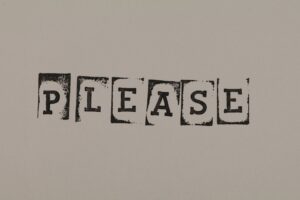Transcript of the video
Hi everyone, I hope you're all well, settled in and ready for another French video.
Before you start, if you need them, you can activate English or French subtitles. As usual, if I speak too fast or too slow, you can speed up or slow down the video.
Today, we're going to talk about a very common mistake that can be made when speaking French and you're not a native speaker, you're just learning French.
It's using "je suis", the verb "être" in place of the correct French verb.
This is a common mistake, especially if you speak English or have learned to speak English. Because we're going to translate literally from English to French, we're going to keep the same sentence construction.
So, if in English it's the verb "to be" that's used, we'll naturally think that it's the verb "être" that's used in French. But this isn't always the case, as we'll see in this video.
I used English as an example because it's the language I know best, apart from French. But maybe that's also the case if you're simply translating your language into French.
So in this video, we'll look at five sentence constructions where you shouldn't say "I am" where you shouldn't use the verb "to be" and I'll tell you which verb you should use instead.
"I'm 30. No. You should say "I'm 30". To talk about your age, use the verb "to have", not "to be". So don't say "I'm 30", say, "I'm 30" or your age. So it's a bad English translation.
On the other hand, if you want to use the verb to be, you can say I'm 30 years old, I'm old for a girl and I'm old for a boy. But it's much more common to use "I'm 30", the verb to have.
You see, it's shorter. It's really much more frequent.
Both are correct, but if I say how old your sister is and you reply, she's 16, that's more sustained language.
Je suis bien. No, you have to say je vais bien, which is the verb "to go" and not the verb "to be". If someone asks you how you are, how are you doing? You have to answer "je vais bien".
You say "I'm fine", to express that you're in good health, in a good mood, that you feel fine, that there's no problem as it's the verb to go, it's "I'm fine", "you're fine", "he's fine", "we're fine", "you're fine", "they're fine".
If you say "I feel good", you're really expressing something else. I'm comfortable is linked to a notion of comfort. For example, if you're sitting on the sofa and someone asks you if you're comfortable, you can answer yes, I'm fine.
I'm hungry and I'm thirsty. Again, this is a mistranslation, perhaps from English. In French, we use the verb "avoir". J'ai faim et j'ai soif or tu as faim, tu as soif. For example, I can say "j'ai faim" because I haven't had breakfast yet and it's already 11 o'clock.
On the other hand, you can say with the verb "to be" I am hungry and I am thirsty.
But be careful, it doesn't mean exactly the same thing as "I'm hungry" and "I'm thirsty". If you say you're thirsty or hungry, it means you're really, really hungry or really, really thirsty.
For example, I could say that I have been walking in the desert for five hours without food or water. I am thirsty and I am hungry.
I'm afraid. No, again, it's the verb "avoir" that's used in French. If you want to express the fact that you're afraid of something, for example, I can say "I'm afraid of spiders", "I'm afraid of the dark" or "I'm afraid of horror films, I prefer comedies".
We use the verb "to have" and not "to be" to express our fear. On the other hand, again, if you want to use the verb to be, you can say "I'm afraid", but this is much less common than saying "I'm scared".
It's more sustained language, really less frequent. In French, it doesn't come spontaneously when you speak. What's more, if you say you're scared, you tend to have the impression that it's about something at a specific moment in time, not something that's going on for a long time. If I say "I'm afraid of spiders", it's in a general way. On the other hand, if I say "I'm scared", it's more in the context of a specific situation.
For example, I can say "my son is scared as soon as he sees the neighbor's dog", and that's okay. It's just a little less frequent than saying "my son is scared as soon as he sees the neighbor's dog".
I am wrong and I am right. Here again, it's the verb avoir that should be used in French, not the verb être. The correct expression is "avoir raison" and "avoir tort".
In English, we'd say "I'm right" and "I'm wrong".
It's the verb "to be", but in French, no, it's the verb "to have".
"To be right" means to be in the right, not to be mistaken. For example, if my husband asks me where did you put the car keys? I can tell him that I haven't used the car in two weeks, and that it was you who last used it.
He'll say, "Oh, you're right, I'll look in all my pockets.
"Being wrong" simply means being wrong, not being right.
"I'm wrong", I'm wrong. You use this expression to say that you've made a mistake, that you're not right. Be careful, because there's another expression very close to avoir tort which is "être en tort".
So, you see here we use the verb "to be". But "to be at fault" is not the same thing. If I say "I'm at fault", it means I've done something wrong.
For example, if I argue with a friend and it's mostly my fault, if we argued because I did something wrong, I can say I was at fault.
Or here's another example: Vanessa is at fault, she's the one who cheated on Sébastien.
We use being at fault to express that it's our responsibility.
The expression "to be at fault" is also often used in the context of a car accident. I was at fault, I didn't stop at the stop sign and I caused an accident.
That's it for today. I hope you enjoyed this video. If you liked it, please put a "like".
It's very important to me. If you're new and you liked this video, subscribe and activate the bell so you don't miss any of my videos. See you soon, and have a wonderful day.








